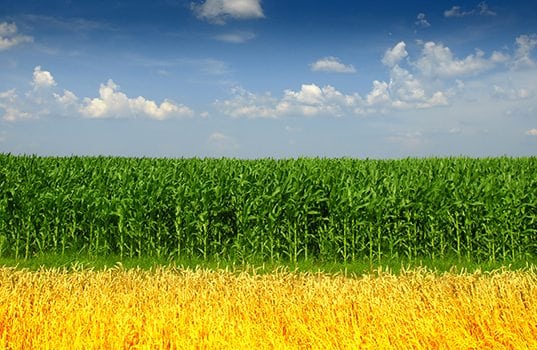Growth Energy, the nation’s largest association of biofuel producers, released a new report examining the potential impact of a growing role for U.S. biofuels in America’s clean energy future. The report was authored by Ramboll, a global research and management firm specializing in sustainable development, at the request of Growth Energy. It presents the latest data on U.S. agricultural innovation, provides a detailed review of recent studies and illuminates gaps in the U.S. Environmental Protection Agency’s (EPA) understanding of U.S. biofuel production.
“The tremendous success of the Renewable Fuel Standard fueled America’s rise as the world’s top producer of affordable, low-carbon biofuels,” said Growth Energy CEO Emily Skor. “From the lab to the farm, new innovations have allowed us to ramp up production year after year, without expanding our environmental footprint. That track record of environmental progress is supported by a wide body of research from public, private, and academic sources. Today’s report will help regulators in Washington wade through misinformation and make decisions about the future growth of biofuels based on sound science.”
The report has been submitted to the EPA as the agency crafts regulations under the Renewable Fuel Standard (RFS). Among other issues, it examines factors raised in the agency’s 2018 Second Triennial Report to Congress, underlying literature relied upon by EPA, and an updated review of scientific literature. The report identifies fundamental flaws in studies purporting to show a causal link between the RFS and land use conversion, and debunks the narrative that increased ethanol production cannot be accomplished without environmental impacts.
“The key conclusion of this report is that there are no proven adverse impacts to land and water associated with increased corn ethanol production under the RFS,” note the Ramboll authors. “Accordingly, EPA could decide to reset renewable volumes in a manner that would incentivize greater production and consumption of conventional corn ethanol in U.S. transportation fuel without discernible adverse environmental impacts to land and water, to the extent any exist. The major factors supporting this conclusion are that continued improvements in agricultural practices and technology indicate that increased demand for corn grown for ethanol in the United States can be met without the need for additional acres of corn planted, while at the same time, reducing potential impacts to water quality or water supplies.”
Other notable excerpts:
- Increases in corn yield and decreases in land use: “Acres planted in corn across the United States has remained close to or below the total acres planted in the early 1930s, despite increases in demand for corn as human food, animal feed, and biofuels over this nearly 90-year period. The increase in demand has largely been met by an approximately 7-fold increase in yield (bushels per acre) … Efforts in better crop management, improved fertilizer use, and precision agriculture are all likely contributors to improved yields.” (pages 1-3)
- Improvements in agricultural practices: “The timing for increasing corn production and reduced potential environmental impacts due to precision agriculture coincides with increased biofuel demand, and the coincidence of these trends will benefit both producers and the environment into the future.” (page 3)
- Water resource availability: “Advancements in technology and water management techniques have continued to increase the efficiency in water resource management by stabilizing, and potentially reducing, the overall volume of water necessary for corn growth … Additionally, the USDA has shown that irrigation for all crops, including corn, has decreased even as the farming acreage has essentially been stable over the past 35 years.” (page 6)
- Water quality: “Advances in sustainable farm management, including substantial improvements in nutrient formulation and use, and technological improvements in pesticide and fertilizer application, will continue to reduce the potential for impacts to water quality in regional watersheds near corn growing areas regardless of the cause of historical water quality impacts.” (page 7)
Ramboll authors also note the impacts of biofuel production should not be examined in a vacuum. They write, “Spills of petroleum, gasoline, and a wide range of other fluids used in the exploration, production, and refining processes as well as land use change to support those activities all have adverse effect on water quality, ecosystems (including wetlands), and wildlife. Additionally, both conventional and unconventional oil and gas extraction place demands on water supply. Failure to address impacts associated with gasoline production relative to impacts from ethanol production does not present a balanced view of alternative energy sources and casts a negative bias on ethanol production.” (page 37)








